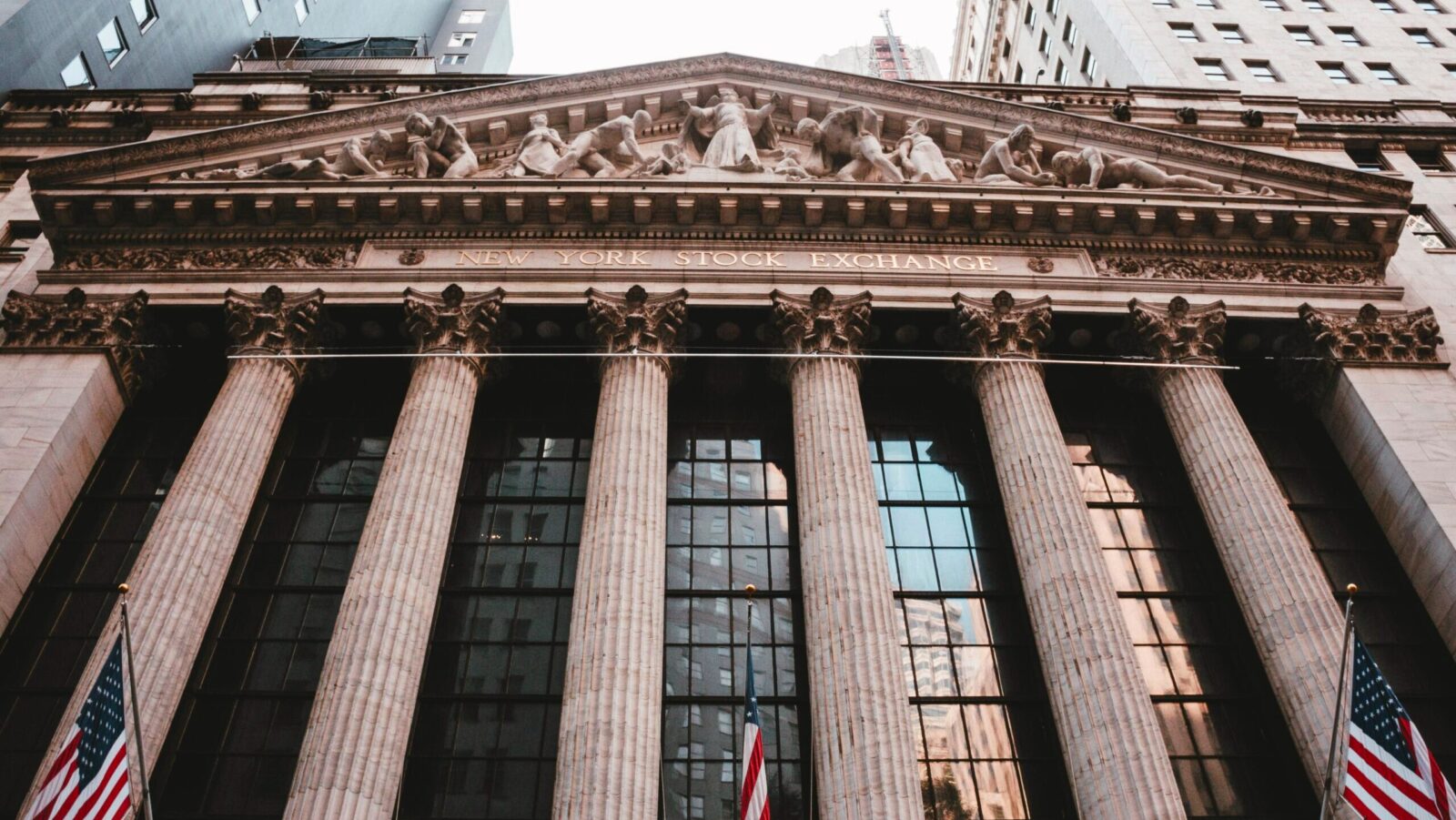Good morning.
Fittingly for the company behind Kraft American Singles, Kraft Heiz would rather be, well, single.
After a decade-long corporate marriage (arranged by 3G Capital Partners and Berkshire Hathaway), Kraft Heinz is preparing for a break-up, according to a Wall Street Journal report on Monday. The writing has been on the ketchup-splattered wall for some time. By 2019, now-former CEO Bernardo Hees said the deal was predicated on delivering savings “that did not materialize.” Hees stepped down not long after. Its share price is down roughly 60% since the 2015 deal, which means that — unlike the preservative-packed American cheese slices sitting in the back of your fridge — after 10 years, this combined company is finally hitting its expiration date.
Inflation Data and Bank Earnings Kick Off a Crucial Test for Markets

Skip the usual brew and order a tea or a Turkish coffee this morning because it’s Tasseography Tuesday. For hundreds of years, people have looked to coffee grounds and tea leaves for fortune-telling and divination and today is the financial equivalent, when analysts will be poring over data and balance sheets like the dried remnants of an empty cup.
The Labor Department is scheduled to release June consumer price index (CPI) data at 8:30 a.m. this morning, a crucial indicator that will have major implications on the future of interest rates. Meanwhile, Wall Street titans JPMorgan, Citigroup and Wells Fargo will kick off a run of crucial earnings today, with lending peers Goldman Sachs, Morgan Stanley and Bank of America, pharma leaders Johnson & Johnson and Novartis, food and beverage giant PepsiCo, and streaming standout Netflix to follow later in the week.
They Might Be Undervalued Giants
Heading into this morning, Bloomberg data shows economists expect headline CPI to have increased 2.6% year-over-year last month, a jump from the 2.4% reading in May. On a month-to-month basis, prices are forecast to have risen 0.3% in June, coming in hotter than the 0.1% a month earlier. If the reading is anything like that, it will be headed in the wrong direction away from the Federal Reserve’s 2% inflation target that officials have eyed for rate cuts, something markets have been waiting on to stimulate M&A. Without the target in sight, markets are pricing for a mere 4.7% chance of a rate cut this month, per the CME FedWatch.
At least the cascade of banking earnings looks a little brighter if recent share performance is any indication. The KBW Bank Index is up 37.9% since its tariff mayhem-induced April low, vaulting the S&P 500’s 25% recovery since its own low. The big US banks already bested first-quarter earnings expectations, and many observers expect their trading desk revenues will have been boosted by record-setting trading days after President Donald Trump’s “Liberation Day” tariff announcement. In the near term, they’re also likely to gain from long-awaited deregulation efforts by the Trump administration — Bloomberg Intelligence analysts flagged that financials, which have a 13.7% weighting in the S&P 500, are forecast to make up 18.6% of the index’s earnings, suggesting the sector may still be undervalued. As for the rest of the market, it’s likely to more closely reflect the volatile second quarter:
- Entering this month, FactSet analysts said analysts expect to see 5% year-over-year earnings growth for the S&P 500 during the second quarter earnings season — that would amount to the slowest growth since the final quarter of 2023. Things are, at least, expected to get better from there: 7.3% in the third quarter, 9% for the full year, and 13.9% in 2026.
- In essence, this means analysts expect second-quarter results will mirror the alternating bearish tumult and bullish triumph of the last three months, with “yippie” selling and a market freakout in April giving way to May and June’s march to recovery and beyond.
Foolish Prediction: The market may have recovered from the selloff prompted by the tariff announcement, but it’s not without potential losses. Analysts surveyed by LSEG IBES expect a more optimistic 5.8% rise in S&P 500 earnings in the second quarter, but that’s a massive downgrade from the 10.2% forecast on April 1. That’s why we’re examining coffee grounds this week. So you don’t have to.
Business Risks Are Escalating Faster Than Ever

Supply chain disruptions. Cash flow crunches. Cybersecurity breaches. Risks facing the C-suite don’t just threaten timelines — they endanger entire operations. One blind spot can trigger cascading failures, from inventory gaps to regulatory fines.
Too many leadership teams are unprepared. Legacy systems create silos. Manual processes can trigger costly errors. Crucial insights get buried in spreadsheets while new threats emerge daily. Oracle NetSuite’s C-Suite Risk Management Checklist highlights eight urgent risk areas every executive should monitor. Each comes with actionable strategies to help teams:
- Identify supply chain vulnerabilities before disruption hits.
- Spot financial blind spots that threaten cash flow stability.
- Strengthen cybersecurity defenses against evolving threats.
Bottom line: Companies prepared for disruption will outmaneuver competitors that are caught off-guard.
Meta Investors Want Zuckerberg to Reimburse the Company
Meta shareholders want Mark Zuckerberg (and a few other familiar faces) to pay for the company’s sins. Literally.
In a trial that kicks off this week, a group of Meta investors are suing Zuck and a who’s who of current and former company executives for actions the company took during the Cambridge Analytica scandal back in 2018 that they say has cost the company billions of dollars. It’s the second instance this year of scorned shareholders going directly after Big Tech executives for instances of failed compliance.
Memory Lane
Let’s flashback to over a decade ago. Back in 2012, Meta (then known simply as Facebook), entered into a consent agreement with the Federal Trade Commission concerning how it shares user data with third parties. By late 2015, The Guardian reported that political consulting firm Cambridge Analytica had harvested the data of millions of Facebook users without their informed consent. By 2018, further reporting revealed the extent of Cambridge Analytica’s data harvesting, which triggered a $100 billion wipeout from the company’s market cap. By 2019, the FTC slapped Facebook with a record $5 billion fine for violating the 2012 agreement.
Now, a group of plaintiff Meta investors are seeking to prove whether Zuckerberg and other company leaders completely failed in their duty of oversight, alleging the company knowingly violated the FTC order at the direction of Zuckerberg. If successful, the plaintiffs want Zuckerberg and friends to reimburse the company around $8 billion to cover the FTC fine and related costs. That list of co-defendants includes board member Marc Andreessen, former chief operating officer Sheryl Sandberg, former board member and Netflix co-founder Reed Hastings, as well as former board member (and current Palantir board member/human species skeptic) Peter Thiel, among others. Meta, the company, is not a defendant.
Legal experts told Reuters the trial appears to be the first-ever to proceed under the claim that directors “utterly failed in their oversight duties,” which is considered incredibly hard to prove in corporate law. However, the head honchos over at Alphabet, dealing with their own investor legal fight this year, can tell you that it’s not unique for executives’ judgment to fall under legal scrutiny:
- In that case, shareholder plaintiffs accused Alphabet executives of breaching their fiduciary duty by exposing the company to antitrust liability (US judges have found in the past year that Alphabet operated and maintained illegal monopolies in both the search and digital advertising industries, possibly resulting in a company break-up later this year).
- In June, the company settled with the shareholders, and agreed to spend $500 million in the next ten years to overhaul its compliance structure and create a new committee to oversee compliance issues.
“These reforms, rarely achieved in shareholder derivative actions, constitute a comprehensive overhaul of Alphabet’s compliance function,” the plaintiffs’ lawyers told Reuters following the settlement agreement.
Private Practice: The Meta lawsuit comes as the company faces renewed scrutiny over its user privacy policies, including questions about whether user data is being used to train the company’s AI models. Which means that, ten years from now, we may be serving up yet another refresher of a Meta scandal you’ve already forgotten about.

Ease Into Your Next Chapter. You’ve worked hard to save for retirement, now let your portfolio do some heavy lifting. The Definitive Guide to Retirement Income covers seven ways you can use a $1M+ portfolio to generate income so you can enjoy life. Plus, get insights to help you understand your cash flow needs and manage your monthly expenses. Get the guide.
Bitcoin Tops $120,000 With Congress Poised to Consider Key Crypto Bills
Nothing to boost an asset class like the most powerful legislative body in the world holding a week in your honor. Bitcoin, the world’s largest cryptocurrency, vaulted over $120,000 for the first time on Monday, the opening day of what Republicans in the House of Representatives have dubbed “Crypto Week.”
Lawmakers are poised to consider three major pieces of legislation that supporters say will “make America the crypto capital of the world.” Those in less sexy asset classes will have to dream of a future Fixed Income Friday on Capitol Hill.
Triple Play
Bitcoin, which is up roughly 30% this year and did pare its gains back below $120,000, was not alone, as other leading cryptocurrencies Ether, Solana and Chainlink advanced on Monday. The trio of bills before Congress — the CLARITY Act, the Anti-CBDC Surveillance State Act and the Senate’s GENIUS stablecoin package.
The CLARITY Act, if passed, would lay the groundwork for a regulatory framework for digital assets and cryptocurrencies. Providing this kind of certainty would likely encourage traditional institutional investors like asset management firms, hedge funds, and banks — some of which have kept a cautious approach to crypto due to a lack of clarity around legal compliance — to grab their knees and plunge in. The Anti-CBDC Surveillance State Act would prohibit the Federal Reserve from issuing its own central bank digital currency – if passed, that would amount to lawmakers articulating a preference for market-driven innovation in the crypto space over state-led initiatives.
Then there’s arguably the most important bill that’s fuelling the crypto rally: the GENIUS Act. This bill would establish a federal framework for stablecoins, a form of cryptocurrency that has a constant value, often via a 1:1 peg to the dollar. The bill would require them to be backed by liquid assets like dollars or Treasury bonds, and issuers would have to disclose their reserve holdings. Stablecoin use has grown considerably in recent months, and many believe they could be used for instant payments — Walmart and Amazon are reportedly considering their own stablecoins, which would allow them to skip billions in traditional financial transaction fees. The optimism is already registering in crypto and traditional markets:
- The global cryptocurrency market, including Bitcoin, rose 3.5% Monday to reach a total valuation of $3.8 trillion.
- On Thursday and Friday last week, inflows to US-based Bitcoin ETFs topped $1 billion, something Nova Dius Wealth President Nate Geraci noted has only happened seven times since their January 2024 debut. Bloomberg noted last week that the world’s largest asset manager, BlackRock, is now generating more revenue from its Bitcoin ETF than its S&P 500 fund.
Strategic Antics: The GENIUS Act received bipartisan support in the Senate and is most likely to reach President Donald Trump’s desk first. But many Democrats are opposed, as well as to the CLARITY Act, which critics have argued contains threadbare protections for consumers and against fraud. In other words, prepare for an engrossing series of hours-long CSPAN still-camera shots of debates over amendments.
Extra Upside
- b-AI-lout: Tesla will ask shareholders to vote on whether to invest in CEO Elon Musk’s privately held xAI, which many saw as an effort to bail out the artificial intelligence company’s merger with Twitter. SpaceX, another Musk vehicle, is reportedly investing $2 billion in xAI.
- Tomato, the New Caviar: Tomato prices for consumers could shoot up as much as 10% after the Trump administration officially pulled out of a 30-year-old trade agreement with Mexico.
- The Digital Asset Adoption Started Small. First, it was a handful of technologists and early adopters. Now, it’s nation states and ivy league endowments. Grayscale makes it easy to begin your own crypto journey. If not for you, do it for your grandkids.*
* Partner

